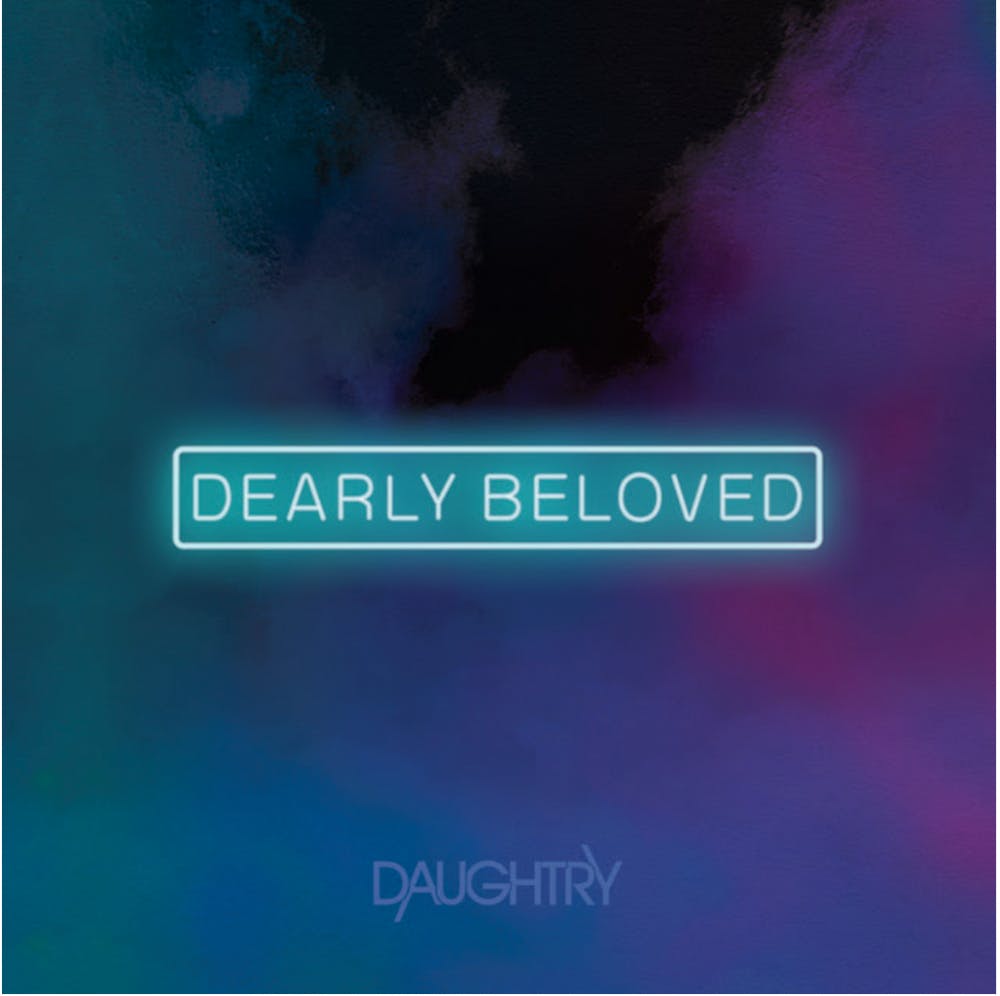By Ian Krietzberg
Managing Editor
After a three-year break since the band’s latest album, “Cage To Rattle,” Daughtry finally returns with a new studio album after a slew of singles released throughout the duration of the pandemic: “Dearly Beloved.” This, the band’s sixth record, is also the first record the group has ever released independent of a record label, with the band’s other five albums being released by RCA Records.
Since Chris Daughtry rose to prominence on American Idol in 2006 — where he somehow finished fourth — his band, Daughtry, have dabbled in a variety of different genre subsets. The group’s 2006 debut album was bursting with slick guitars and post-grunge roars and went on to become the fastest-selling debut rock album in Soundscan history.

Since the success of that debut, Daughtry has pushed beyond comparisons to Nickelback and released several successful rock ‘n’ roll records before 2013 saw a noticeable turn with “Baptized,” a record that was more parts pop than rock.
After a long break, 2018’s “Cage To Rattle” was markedly more intense, but it was short and felt like a hesitating return to the kind of music Daughtry really wanted to be making.
“Dearly Beloved” feels like an absolute, powerful return, not only to the band’s post-grunge roots, but also to the kind of passion that comes from loving the music you’re making. And this record is teeming with passion.
It’s structured around this wonderful back-to-basics setup, with guitars, drums and a bass, all building an intense sonic environment through which Daughtry’s powerhouse vocals soar.
The album opens up with the nearly five-minute-long track ‘Desperation,’ a song that opens with a slow synth build that evolves into a driving guitar-drum moment. Almost a full minute of this instrumental passes before Daughtry begins to sing, and he begins with his voice pitched low, melding smoothly into the guitar.
As he breaks into the chorus, the guitar drives anthemically, and Daughtry’s voice jumps into his signature, impossible, high, clear, grungy area, delivering a powerful, desperate cry.
It’s the perfect way to open the record. Equal parts subtle and ambitious, as a perfect example of a solid rock ballad, it truly sets the stage for a record that brings Daughtry back to their post-grunge beginnings, albeit with a more modern take.
“Asylum” has this lovely, haunting intro — Daughtry’s voice is full of this passionate texture, which, combined with the initial lack of instrumentation and the effect on his voice, creates a really interesting introduction to the track. That little five or six-second intro is a great example of the rare kind of vocal ability and control Daughtry has. To, seemingly without effort, inflect greater or lesser quantities of intensity and texture and grunge into certain syllables of certain words is a talent few share.
The song builds into a pretty standard rock track whose chorus is resplendent with driving drums and screaming guitar fills, all filling the air around the focal point of the track: Daughtry’s alluring vocals.
Out of the 13-track record, however, two songs really stood out to me: “Somebody” and “Call You Mine.”
“Somebody” has this amazing, honest yearning that is clear in both the lyrics and the vocals. The more laid-back instrumentation on the verses — a little synth and piano — make the lyrical message that much more accessible. But each chorus quickly evolves into intensity layered over top of a driving grungy guitar line — it is a master class in the rock ballad genre.
“Call You Mine” is that one song that represents a change in pace for the record. It opens with a palm-muted acoustic guitar, which is soon joined by Daughtry sounding absolutely tender. He sings in something that is close to a whisper, and it’s a further exploration of the yearning he exhibits in “Somebody.” It’s a sound that fits the power of his voice incredibly well.
The way the instrumentation builds and evolves as the song progresses was carefully thought out. As subtle guitar fills and drums begin filling the space, adding to the overall passionate intensity of the track, the emotion increases markedly. As the penultimate chorus builds and breaks into a guitar solo — one that proves the value in under-playing — the final chorus possesses an even greater level of passion and power.
“Dearly Beloved” is like a multi-faceted diamond. As you turn it, the light hits each side differently. Here, every song shows a different take on that broad and amazing genre of rock music. There are moments that are more than recalcitrant of the grunge era of the nineties; there are moments that are softer; there are ballads and breaths of fresh air; there is build and release, all infused and entwined with passionate pleas and those tremendous gut-wrenching vocals.
“Dearly Beloved” might just be Daughtry’s best overall record since their self-titled debut in 2006.







